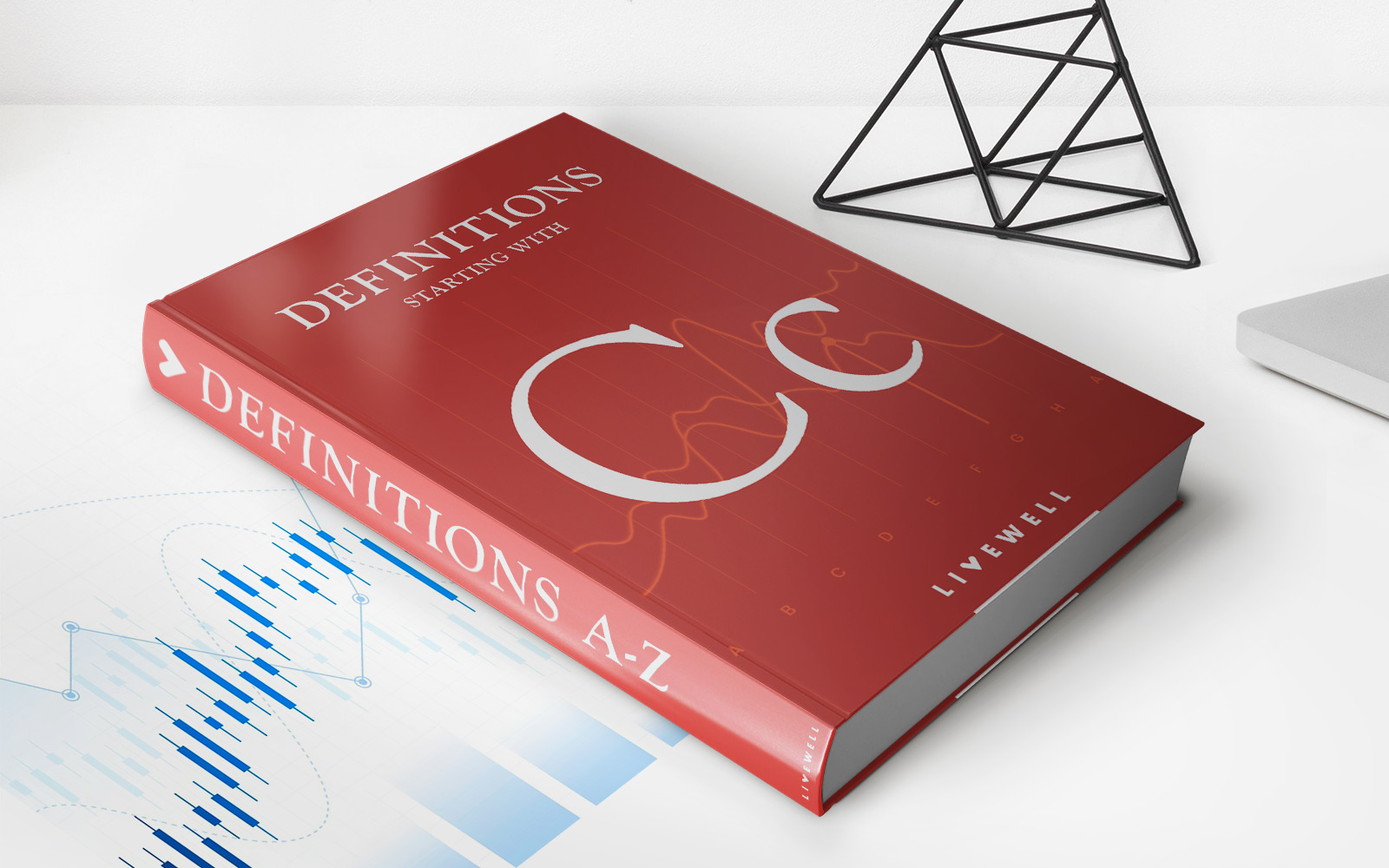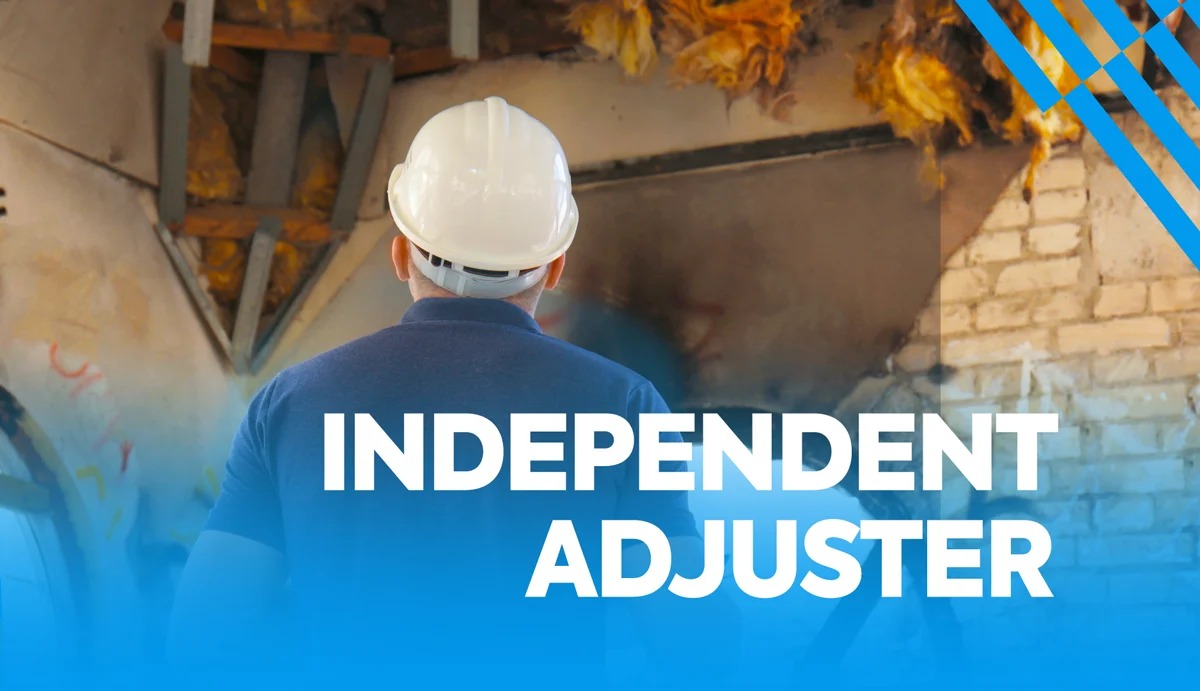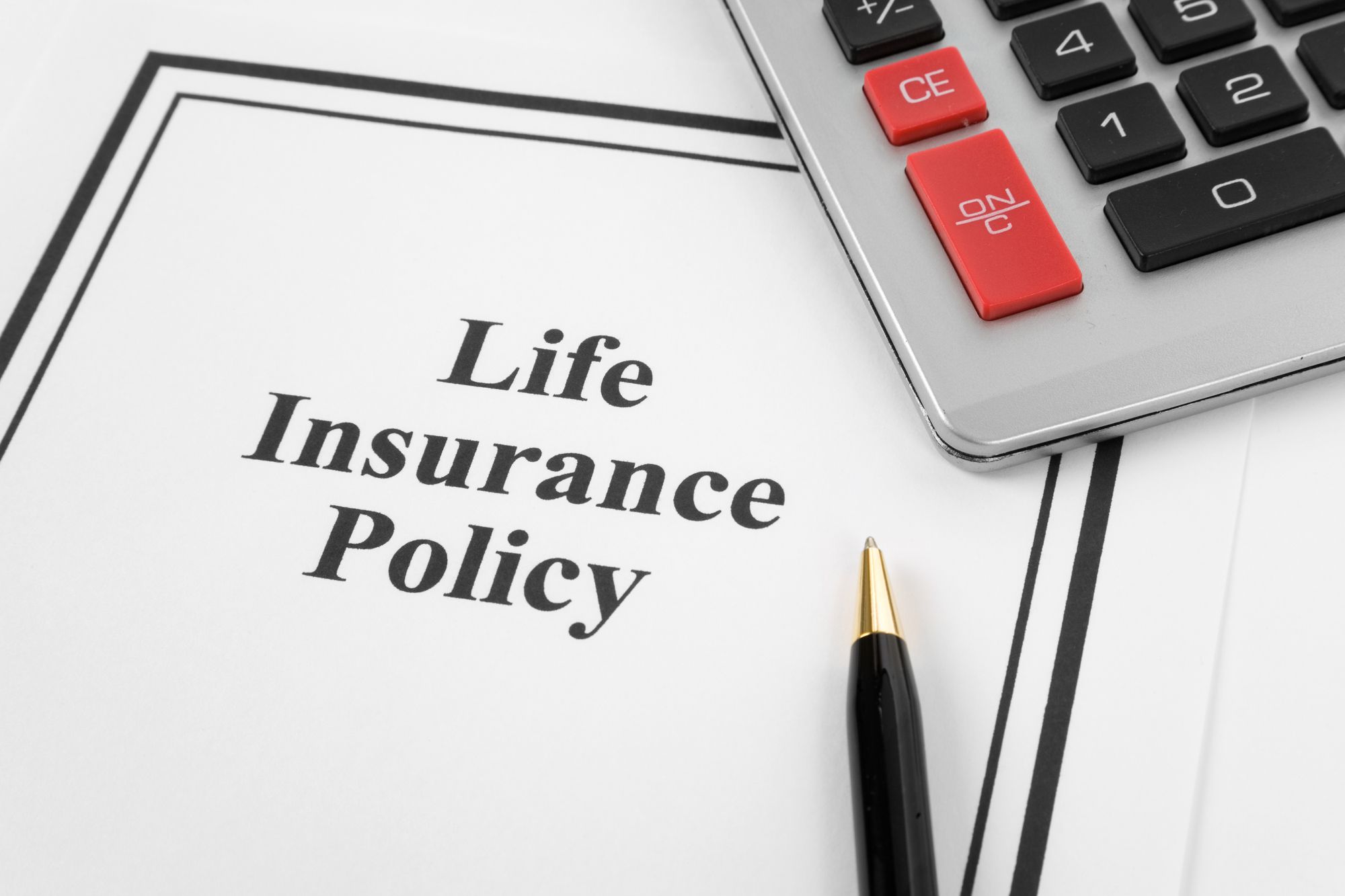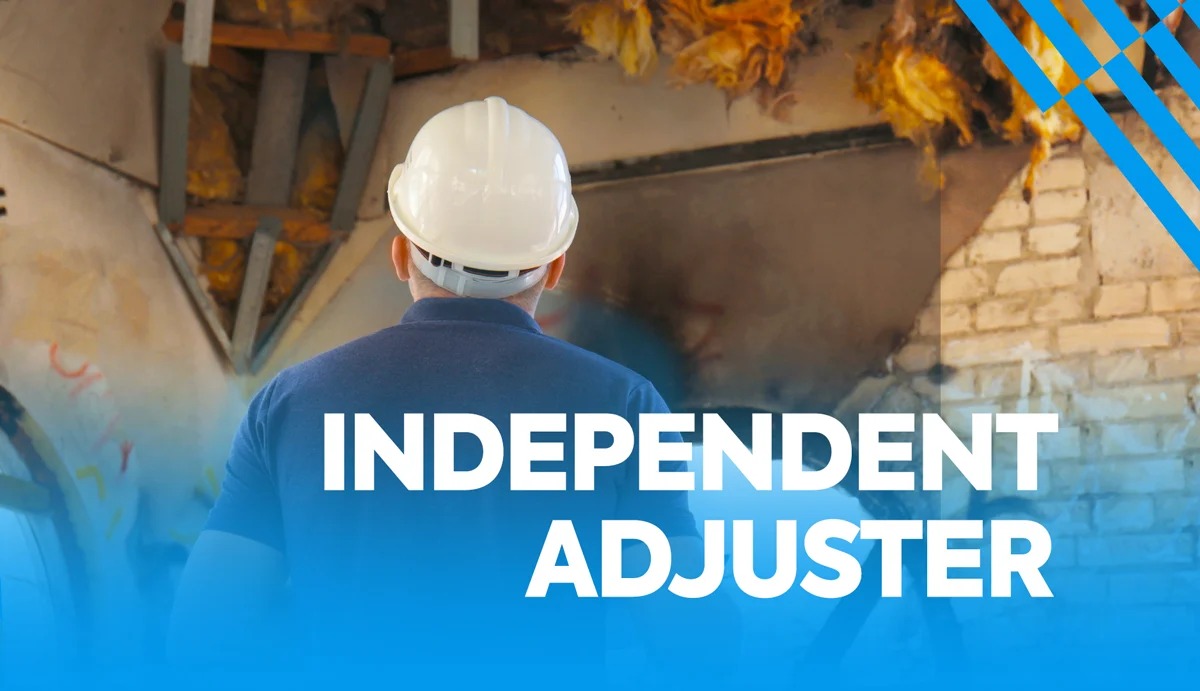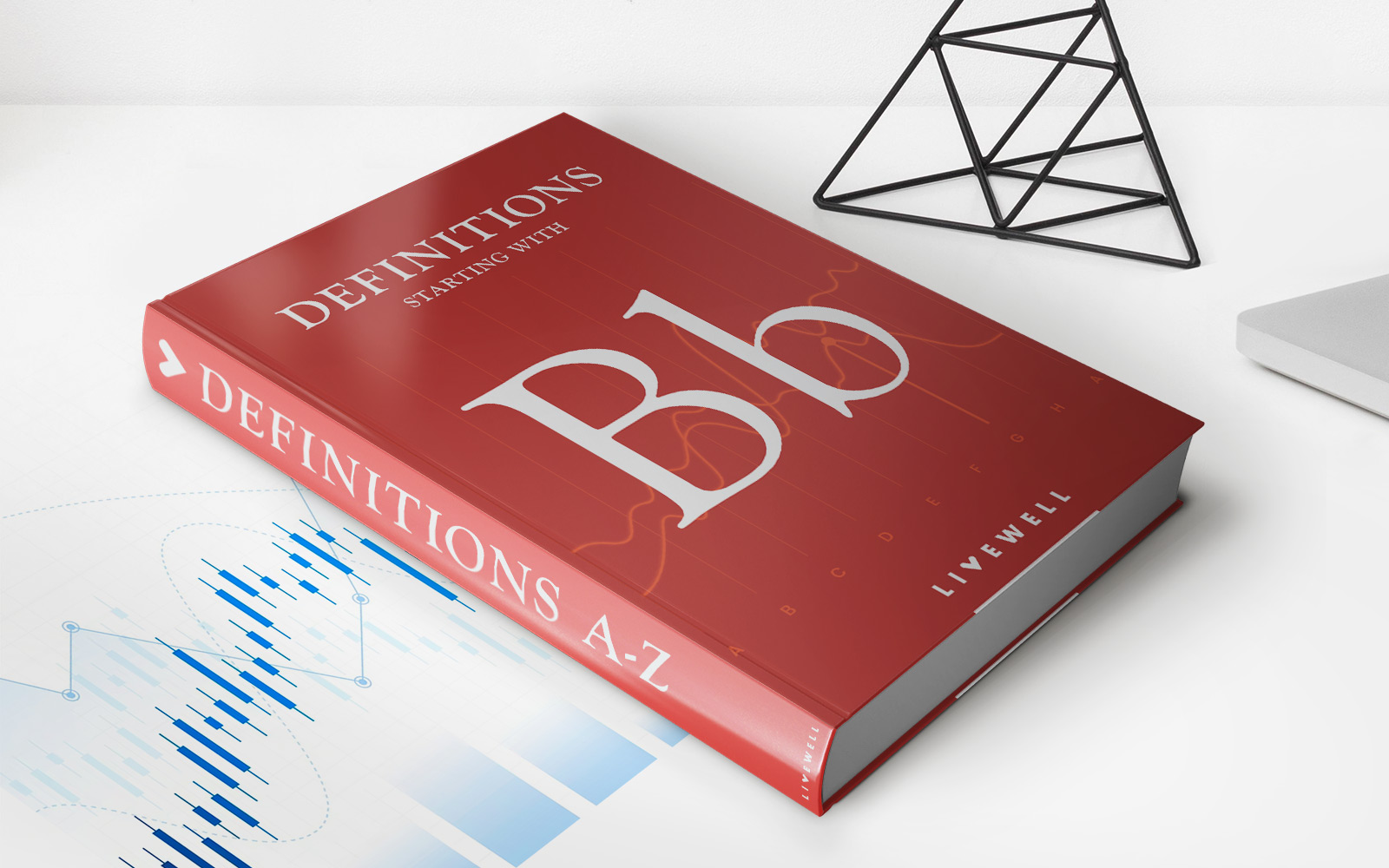Home>Finance>How To Become An Insurance Adjuster In North Carolina


Finance
How To Become An Insurance Adjuster In North Carolina
Modified: December 30, 2023
Learn how to become a licensed insurance adjuster in North Carolina and start your career in the lucrative field of finance.
(Many of the links in this article redirect to a specific reviewed product. Your purchase of these products through affiliate links helps to generate commission for LiveWell, at no extra cost. Learn more)
Table of Contents
- Introduction
- Licensing Requirements for Insurance Adjusters in North Carolina
- Steps to Becoming an Insurance Adjuster in North Carolina
- Exam and Continuing Education Requirements
- Job Opportunities and Salary Outlook
- Important Skills and Qualifications for Insurance Adjusters
- Duties and Responsibilities of an Insurance Adjuster in North Carolina
- Tips for Success in the Insurance Adjuster Profession
- Conclusion
Introduction
When unexpected events like natural disasters or accidents occur, insurance adjusters play a crucial role in helping individuals and businesses recover and get back on their feet. In North Carolina, becoming an insurance adjuster can be a rewarding career choice for those interested in the finance industry and who possess strong analytical and communication skills.
Insurance adjusters in North Carolina are responsible for assessing damages, determining policy coverage, and negotiating settlements on behalf of insurance companies or policyholders. They work closely with all parties involved in an insurance claim, including policyholders, witnesses, and other professionals such as attorneys and restoration specialists.
To become an insurance adjuster in North Carolina, certain licensing requirements must be met. These requirements aim to ensure that individuals entering this profession have the necessary knowledge and expertise to handle insurance claims effectively and ethically. Additionally, there are specific steps, exams, and continuing education requirements that aspiring insurance adjusters must fulfill.
This article will guide you through the process of becoming an insurance adjuster in North Carolina, including the licensing requirements, steps to get licensed, exam and continuing education requirements, job opportunities, important skills and qualifications, as well as tips for success in this profession.
Whether you are considering a career change or are a recent graduate looking to venture into the insurance industry, this comprehensive guide will provide you with the information you need to kickstart your journey as an insurance adjuster in North Carolina.
Licensing Requirements for Insurance Adjusters in North Carolina
In North Carolina, insurance adjusters are required to obtain a license from the North Carolina Department of Insurance. This license ensures that adjusters have the necessary knowledge and skills to handle insurance claims effectively and ethically.
To be eligible for an insurance adjuster license in North Carolina, applicants must meet the following requirements:
- Be at least 18 years old: Applicants must be at least 18 years old or older to be eligible for an insurance adjuster license.
- Complete pre-licensing education: Adjuster candidates must complete a pre-licensing education course approved by the North Carolina Department of Insurance. The course covers topics such as insurance policies, claims handling procedures, ethics, and legal requirements.
- Pass the adjuster licensing exam: After completing the pre-licensing education, applicants must pass the North Carolina adjuster licensing exam. This exam evaluates the candidate’s knowledge of insurance policies, claim handling practices, and North Carolina insurance laws.
- Submit an application and fee: Once the pre-licensing education and exam are successfully completed, applicants must submit an application to the North Carolina Department of Insurance and pay the required fee.
It is important to note that individuals applying for an insurance adjuster license in North Carolina must undergo a criminal background check. Any criminal convictions or felonies may impact the licensing decision.
Additionally, if the applicant currently holds an adjuster license in another state, they may qualify for a reciprocal license. This means that they can transfer their existing license to North Carolina without having to take the state’s adjuster exam. However, they will still need to meet the other requirements, including the pre-licensing education and application process.
Once the license is issued, insurance adjusters in North Carolina must renew their license every two years. The renewal process typically involves completing a certain number of continuing education credits to stay updated on industry changes and regulations.
Obtaining an insurance adjuster license in North Carolina is an important step towards starting a career in this field. It demonstrates a commitment to professionalism and competence, providing the necessary credentials to handle insurance claims effectively and ethically.
Steps to Becoming an Insurance Adjuster in North Carolina
If you are interested in becoming an insurance adjuster in North Carolina, follow these steps to kickstart your career:
- Educate yourself about the profession: Before pursuing a career as an insurance adjuster, it’s essential to understand the responsibilities and requirements of the job. Research various resources such as job descriptions, industry publications, and online forums to gain insights into the field.
- Complete the pre-licensing education: To become licensed as an insurance adjuster in North Carolina, you must complete a pre-licensing education course approved by the North Carolina Department of Insurance. The course covers important topics such as insurance policies, claim handling procedures, ethics, and legal requirements.
- Prepare for the licensing exam: Once you have completed the pre-licensing education, it’s time to prepare for the licensing exam. The exam evaluates your knowledge of insurance policies, claim handling practices, and North Carolina insurance laws. Study materials and practice exams are available to help you prepare.
- Pass the licensing exam: Schedule and take the North Carolina adjuster licensing exam. Be sure to arrive early, well-prepared, and confident. Passing the exam is a significant milestone towards obtaining your insurance adjuster license.
- Submit your application and fee: After successfully passing the licensing exam, submit your application for an insurance adjuster license to the North Carolina Department of Insurance. Ensure that you include all required documentation and pay the necessary fee.
- Undergo a background check: As part of the licensing process, you will undergo a criminal background check. It is important to have a clean record as any criminal convictions may impact your eligibility for an insurance adjuster license.
- Complete any additional requirements: Depending on your circumstances, there may be additional requirements to fulfill. For example, if you hold an adjuster license in another state, you may qualify for a reciprocal license in North Carolina. In this case, you will need to provide proof of your existing license and meet the other requirements specified by the North Carolina Department of Insurance.
- Receive and maintain your license: Once your application is approved, you will receive your insurance adjuster license from the North Carolina Department of Insurance. Remember to renew your license every two years by completing the required continuing education credits.
By following these steps, you can navigate the process of becoming an insurance adjuster in North Carolina with confidence and set yourself up for a successful career in this dynamic field.
Exam and Continuing Education Requirements
Aspiring insurance adjusters in North Carolina must pass the adjuster licensing exam administered by the North Carolina Department of Insurance. This exam assesses their knowledge of insurance policies, claim handling practices, and North Carolina insurance laws.
The exam consists of multiple-choice questions and is proctored at designated testing centers. It is essential to thoroughly study the relevant materials and practice sample questions to increase your chances of success. Passing the exam is a crucial step towards obtaining your insurance adjuster license.
Once licensed, insurance adjusters in North Carolina must fulfill continuing education requirements to stay updated on industry changes and maintain their license validity. The North Carolina Department of Insurance requires adjusters to complete 24 hours of continuing education credits every two years.
The continuing education courses cover a range of topics related to insurance policies, claim handling procedures, ethics, and legal requirements. Adjusters can choose from a variety of approved courses offered by educational institutions and professional organizations.
It is important to keep track of your continuing education credits and ensure that they are completed before the license renewal date. Failure to meet the continuing education requirements may result in the expiration of your license.
Continuing education credits can be obtained through various methods, including in-person courses, online webinars, seminars, and self-study programs. Adjusters have the flexibility to choose the most convenient option that fits their schedule and learning preferences.
Additionally, insurance adjusters who hold specific designations, such as the Chartered Property Casualty Underwriter (CPCU) designation, may be exempt from some continuing education requirements. These designations demonstrate a higher level of expertise and knowledge in the insurance industry.
Continuing education is not only a requirement but also an opportunity for insurance adjusters to stay abreast of industry trends, enhance their skills, and expand their knowledge. It allows adjusters to provide better service to policyholders and maintain a high level of professionalism in their field.
By fulfilling the exam and continuing education requirements, insurance adjusters in North Carolina can ensure that they possess the necessary expertise to handle complex insurance claims and maintain their license validity in a constantly evolving industry.
Job Opportunities and Salary Outlook
Insurance adjusters play a vital role in the insurance industry, and there are numerous job opportunities available in North Carolina for professionals in this field. As the state experiences an increasing number of insurance claims, the demand for skilled adjusters continues to rise.
Insurance companies, independent adjusting firms, and self-insured organizations are common employers of insurance adjusters. These employers rely on adjusters to investigate, evaluate, and settle insurance claims across a variety of sectors, including property and casualty, auto, workers’ compensation, and more.
The salary outlook for insurance adjusters in North Carolina varies depending on factors such as experience, education, location, and the type of claims handled. On average, the annual salary for insurance adjusters in the state ranges from $50,000 to $75,000.
Entry-level adjusters typically start at the lower end of the salary range, while experienced adjusters with advanced certifications and expertise may earn higher wages. Adjusters who specialize in high-demand areas, such as catastrophe claims or complex commercial claims, also have the potential to earn higher salaries.
In addition to a base salary, insurance adjusters in North Carolina may receive bonuses or incentives based on their performance and the volume of claims they handle. These bonuses can significantly increase overall compensation.
Furthermore, the insurance industry offers opportunities for career advancement and growth. Experienced adjusters can progress to senior or supervisory roles, where they oversee a team of adjusters or specialize in specific areas of claims handling.
The job outlook for insurance adjusters in North Carolina remains favorable due to the continuous need for professionals with expertise in assessing and handling insurance claims. As the insurance industry adapts to changing regulations and technologies, adjusters with strong analytical skills, excellent communication, and the ability to navigate complex claim processes are in high demand.
Overall, pursuing a career as an insurance adjuster in North Carolina can lead to stable employment, competitive salaries, and opportunities for professional growth and advancement within the insurance industry.
Important Skills and Qualifications for Insurance Adjusters
Insurance adjusters in North Carolina require a unique set of skills and qualifications to effectively handle insurance claims and provide exceptional service to policyholders. While the specific requirements may vary depending on the employer and the type of claims, here are some important skills and qualifications for insurance adjusters:
- Strong Analytical Skills: Insurance adjusters need to analyze policy documents, review claim details, and assess damages to accurately determine coverage and settlement amounts. They must have the ability to evaluate information, make informed decisions, and solve complex problems.
- Excellent Communication: Effective communication skills are essential for insurance adjusters to interact with claimants, policyholders, witnesses, and other professionals such as attorneys and restoration specialists. They must be able to explain complex concepts, negotiate settlements, and handle sensitive situations with empathy and professionalism.
- Attention to Detail: Adjusters must pay close attention to details to accurately document and record information related to the claim. They need to gather and organize evidence, photographs, and other documentation to support their assessment and settlement decisions.
- Knowledge of Insurance Policies: Insurance adjusters must possess a comprehensive understanding of different insurance policies, coverage limits, and exclusions. They should be familiar with policy language and legal requirements to effectively evaluate claims and determine if the damages are covered.
- Ethical Conduct: Adjusters are entrusted with handling sensitive and confidential information. They must adhere to ethical standards and conduct themselves with integrity, ensuring fair and unbiased assessment of claims while protecting the interests of both the insurer and the policyholder.
- Computer and Technology Skills: Proficiency in using computer software and technology is crucial for insurance adjusters. They should be comfortable working with claim management systems, document management software, and other tools to efficiently handle claims and generate reports.
- Insurance and Legal Knowledge: A solid understanding of insurance laws, regulations, and industry trends is beneficial for insurance adjusters. Staying updated on changes in insurance practices and legal requirements helps ensure compliance and accurate claim handling.
- Customer Service Orientation: Insurance adjusters play a key role in the claims process, which can be a stressful time for policyholders. A customer service mindset is essential to provide empathetic and timely responses to claimants, managing their expectations, and providing support throughout the claims process.
Insurance adjusters with additional certifications or designations, such as the Chartered Property Casualty Underwriter (CPCU) or the Associate in Claims (AIC), may have a competitive advantage. These certifications demonstrate a higher level of expertise and commitment to professional development within the insurance industry.
Continuing education is also important for insurance adjusters to stay current with industry standards and best practices.
By possessing a combination of technical knowledge, interpersonal skills, and a commitment to professionalism, insurance adjusters in North Carolina can excel in their roles and provide high-quality service to policyholders while navigating the complex landscape of insurance claims.
Duties and Responsibilities of an Insurance Adjuster in North Carolina
Insurance adjusters in North Carolina have a range of duties and responsibilities to ensure the fair resolution of insurance claims. Their primary role is to investigate claims, assess damages, and negotiate settlements on behalf of insurance companies or policyholders. Here are some key duties and responsibilities of an insurance adjuster:
- Investigate Claims: Insurance adjusters are responsible for conducting thorough investigations of insurance claims. They gather information from policyholders, witnesses, and other relevant parties to determine the cause and extent of damages. This may involve site visits, reviewing police reports, interviewing claimants, and assessing property or vehicle damage.
- Evaluate Coverage: Adjusters carefully review insurance policies to determine the scope of coverage for a specific claim. They analyze policy language, terms, and conditions to assess whether the damages fall within the policy limits or exclusions. Adjusters must have a comprehensive understanding of various insurance policies and legal requirements to make accurate coverage determinations.
- Assess Damages: Once the claim investigation is complete, insurance adjusters evaluate the extent of the damages. They may work with experts, such as contractors or medical professionals, to estimate repair costs or assess bodily injuries. Accurate assessment of damages helps determine the appropriate settlement amount.
- Negotiate Settlements: Adjusters negotiate with claimants or their representatives to reach fair and reasonable settlements. They consider factors such as policy limits, liability, damages, and the impact on the insured. Effective communication and negotiation skills are essential to achieve satisfactory outcomes while maintaining positive relationships with policyholders.
- Document and Record Information: Insurance adjusters maintain detailed records of their investigations, depositions, interviews, and settlement negotiations. They document the facts, evidence, and findings related to the claim. Accurate and thorough documentation is crucial for insurance companies to process claims accurately and comply with legal requirements.
- Provide Customer Service: Adjusters serve as the main point of contact for claimants and policyholders throughout the claims process. They provide timely responses to inquiries, address concerns, and keep all parties informed of the claim status. Adjusters must have excellent communication and customer service skills to deliver a positive experience during a potentially stressful time for the policyholder.
- Manage Claims Process: Insurance adjusters handle claims from start to finish, ensuring that the process is efficient and compliant with industry regulations. They monitor claim documents, follow internal procedures, and meet deadlines for necessary actions, such as issuing settlement checks or closing claims.
- Adhere to Ethics and Legal Standards: Adjusters must conduct their work with a strong sense of ethics and professionalism. They must adhere to legal and regulatory requirements, handle claims impartially, and maintain confidentiality. Adjusters are expected to demonstrate fairness, integrity, and empathy in their interactions with all parties involved in the claim.
Insurance adjusters in North Carolina play a critical role in facilitating the resolution of insurance claims. By performing their duties responsibly and diligently, they contribute to the integrity of the insurance industry and help policyholders recover from unexpected events.
Tips for Success in the Insurance Adjuster Profession
The insurance adjuster profession in North Carolina requires a combination of technical knowledge, interpersonal skills, and a strong work ethic. If you are aspiring to excel in this field, here are some tips for success:
- Continuously Improve Your Skills: Stay updated on industry trends, regulations, and best practices through ongoing education and professional development. Expand your knowledge in areas such as insurance policies, claims handling procedures, and legal requirements. Seek out training opportunities, industry conferences, and networking events to enhance your expertise.
- Develop Strong Communication Skills: Effective communication is crucial in this profession. Enhance your verbal and written communication skills to clearly explain complex concepts, negotiate settlements, and handle difficult conversations with empathy and professionalism. Active listening and empathy are key components of building rapport with policyholders and earning their trust.
- Master the Art of Investigation: Develop strong investigative skills to gather accurate and comprehensive information during claim investigations. This includes attention to detail, critical thinking, and the ability to analyze evidence. Familiarize yourself with modern investigation techniques and stay informed about technological advancements that can aid in your investigations.
- Build a Professional Network: Cultivate relationships with industry professionals, including attorneys, contractors, medical professionals, and other insurance adjusters. Building a strong professional network can provide valuable resources, support, and mentorship opportunities. Stay active in professional organizations related to the insurance industry to expand your network further.
- Adapt to Technology: Embrace technology and learn to utilize it effectively in your work. Familiarize yourself with claims management systems, document management software, and other tools that can streamline your processes. Stay updated on industry-specific software and apps that can aid in data analysis, estimation, and reporting.
- Take a Customer-Centric Approach: Providing exceptional customer service is essential. Strive to be responsive, reliable, and transparent in your communication with policyholders and claimants. Understand their needs, concerns, and expectations, and proactively provide updates throughout the claims process. A customer-centric approach can enhance satisfaction and improve relationships.
- Develop Negotiation Skills: Negotiation is a key component of the insurance adjuster’s role. Invest time in developing your negotiation skills, including the ability to find mutually beneficial solutions and handle difficult situations with diplomacy. Understand the value of effective communication, active listening, and the art of compromise.
- Prioritize Ethics and Professionalism: Uphold high ethical standards and professionalism in all aspects of your work. Adhere to legal and regulatory requirements, maintain confidentiality, and treat all parties involved in the claim with fairness and respect. Conduct yourself with integrity and strive to build trust with both policyholders and insurance companies.
- Embrace a Continuous Learning Mindset: The insurance industry is constantly evolving, and staying current with industry changes is vital for success. Embrace a mindset of continuous learning, seek feedback, and be open to new ideas and approaches. Strive for personal and professional growth to adapt to the ever-changing landscape of the insurance adjuster profession.
By following these tips and continuously improving your skills, knowledge, and approach to the insurance adjuster profession, you can set yourself up for success in North Carolina’s dynamic insurance industry.
Conclusion
Becoming an insurance adjuster in North Carolina can open doors to a rewarding career in the finance industry. By completing the necessary licensing requirements, including pre-licensing education and passing the adjuster licensing exam, you can embark on a fulfilling journey in this field.
As an insurance adjuster, your role will involve assessing damages, evaluating coverage, and negotiating settlements for insurance claims. By possessing important skills such as strong analytical abilities, effective communication, attention to detail, and a customer-centric approach, you can excel in this profession.
Continuing education and professional development are crucial to stay updated on industry trends, regulations, and best practices. Embracing technology, building a professional network, and mastering investigative and negotiation skills are also key to success in this ever-evolving field.
By prioritizing ethics, professionalism, and a dedication to customer service, you can build trust and maintain positive relationships with both insurance companies and policyholders. Your ability to navigate complex claim processes while providing empathetic and timely service will contribute to the integrity of the industry.
The insurance adjuster profession in North Carolina offers a range of opportunities for career growth and advancement. With experience and additional certifications, you can take on senior or specialized roles, overseeing teams or handling complex claims in specific areas.
In conclusion, the path to becoming an insurance adjuster in North Carolina requires dedication, continuous learning, and the development of essential skills. By embarking on this exciting career, you can make a positive impact by helping individuals and businesses recover from unexpected events, all while building a successful and fulfilling professional journey in the insurance industry.
